Indigenous Governance Database
Conferences, Seminars & Symposia
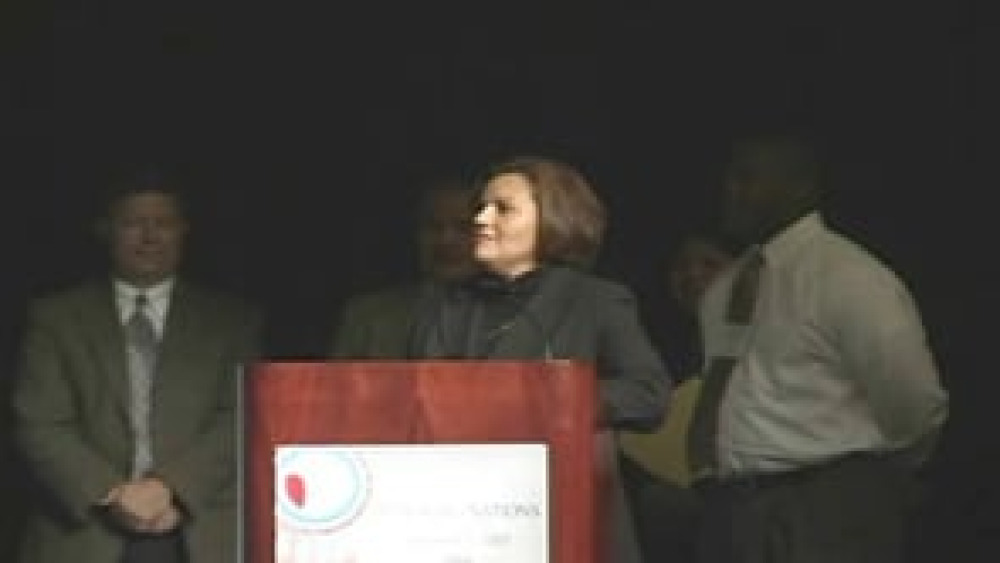
Honoring Nations: Rae Nell Vaughn, Dan Mittan, Henderson Williams, Andrew Jones, and Hilda Faye Nickey: The Choctaw Tribal Court System
Representatives from the Choctaw Tribal Court System present an overview of the court system's development to the Honoring Nations Board of Governors in conjunction with the 2005 Honoring Nations Awards.
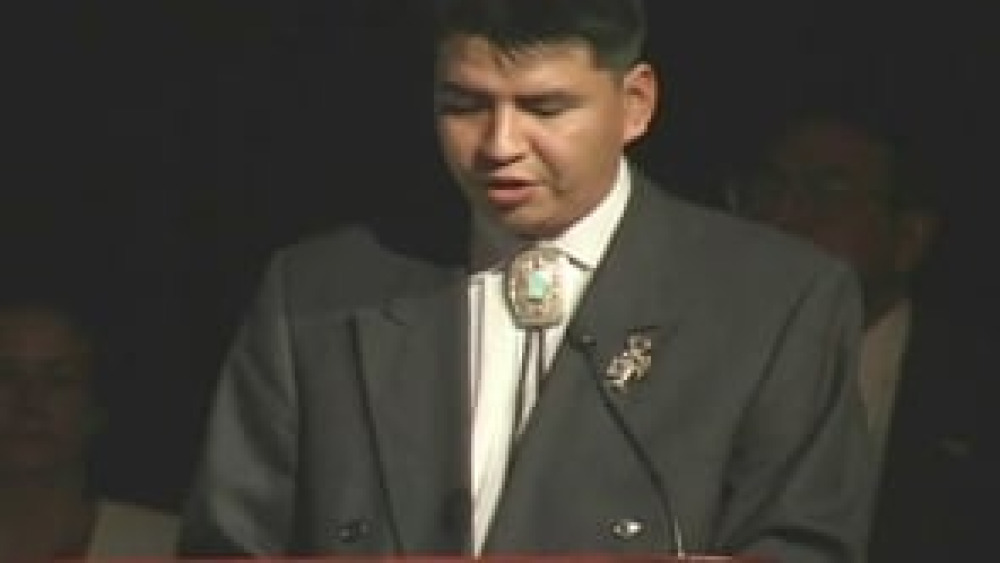
Honoring Nations: Loren Bird Rattler, Ray Montoya and Jay St. Goddard: Siyeh Corporation
Representatives from the Siyeh Corporation present an overview of the corporation's establishment and growth to the Honoring Nations Board of Governors in conjunction with the 2005 Honoring Nations Awards.
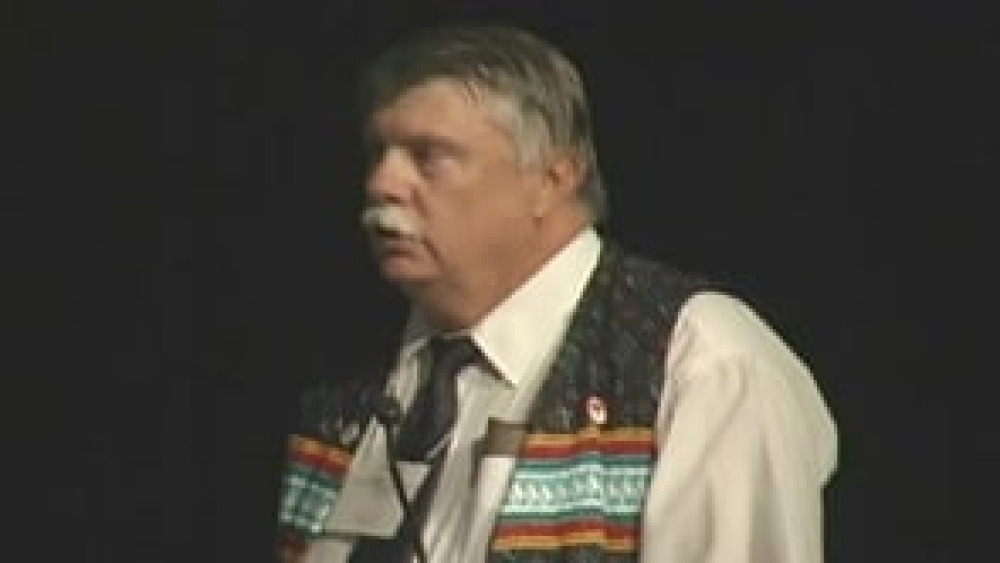
Honoring Nations: Steve Terry and Rory Feeney: Miccosukee Tribe Section 404 Permitting Program
Miccosukee Tribe Land Resources Manager Steve Terry and Fish and Wildlife Director Rory Feeney present an overview of the Miccosukee Tribe Section 404 Permitting Program to the Honoring Nations Board of Governors in conjunction with the 2005 Honoring Nations Awards.

Honoring Nations: Dusty Delso: Cherokee Language Revitalization Project
Dusty Delso presents an overview of the Cherokee Language Revitalization Project to the Honoring Nations Board of Governors in conjunction with the 2005 Honoring Nations Awards.
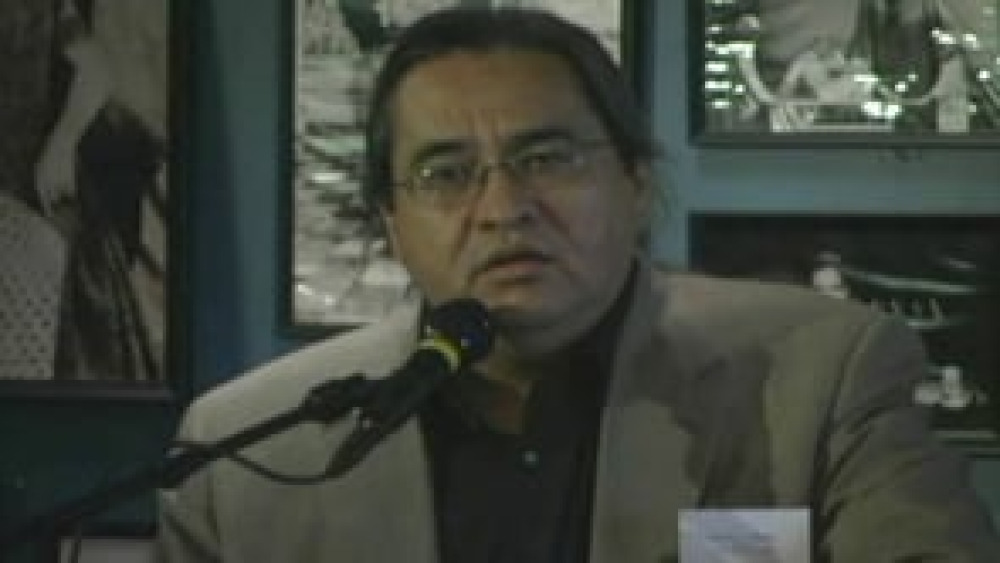
Honoring Nations: Manley Begay: So You Have a Great Program...Now What?!
"Forward-thinking" is often used to describe innovative programs. In remarks designed to frame the symposium session "So You Have a Great Program...Now What?!", Manley A. Begay, Jr. talks about strategic orientation, planning, and implementation as critical to sustaining the success of tribal…
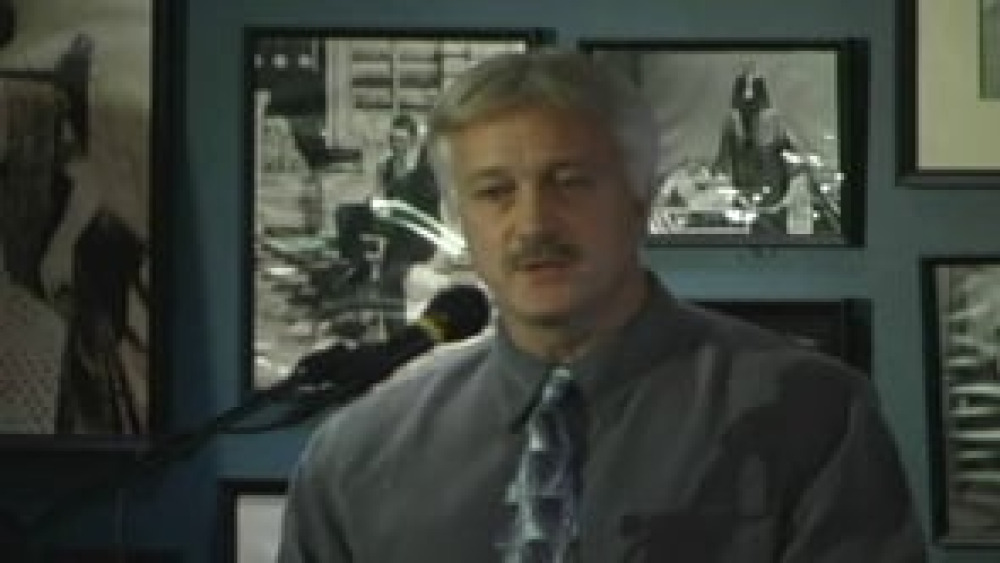
Honoring Nations: Rick George: The Umatilla Basin Salmon Recovery Project: Building on Success
Rick George, former Program Manager for Rights Protection and Environmental Planning with the Confederated tribes of the Umatilla Indian Reservation, shares what he sees as the foundational characteristics of the Umatilla Basin Salmon Recovery Project and other examples of successful,…
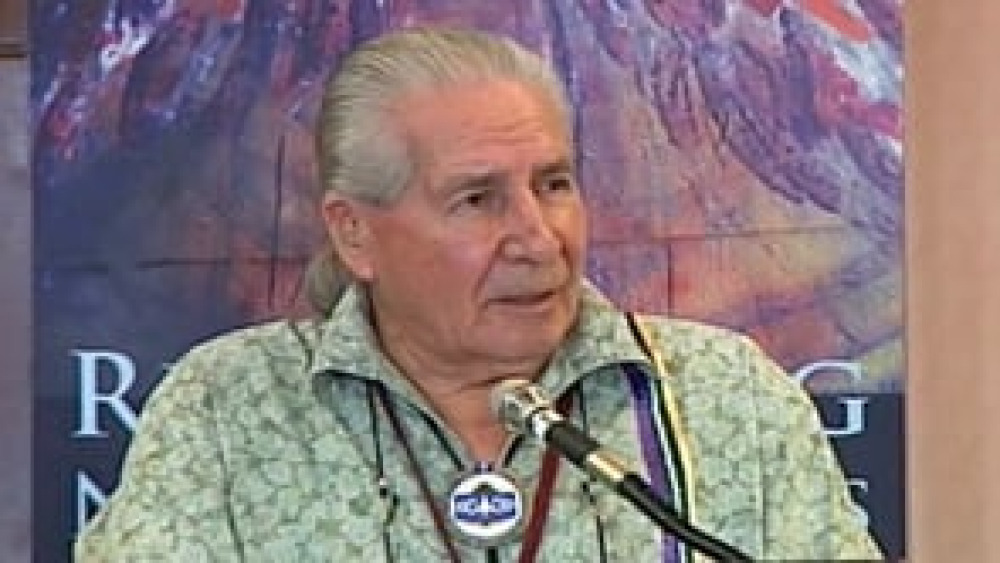
From the Rebuilding Native Nations Course Series: "The Strategic Approach to Leadership"
Native leaders discuss why it is important for Native nation leaders to take a strategic approach to leadership, stressing that the decisions they make must be made with the culture and values of their people and the next seven generations in mind.
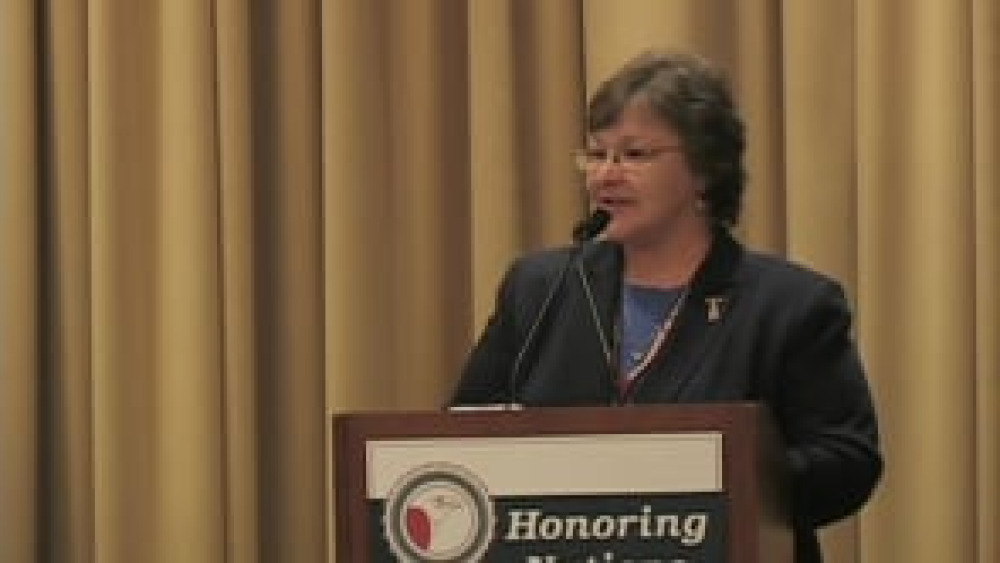
Honoring Nations: Karen Diver: Sovereignty Today
Fond du Lac Band of Lake Superior Chippewa Chairwoman Karen Diver argues that for Native nations to aggressively assert their sovereignty in order to achieve their goals, they must develop capable governing institutions to put that sovereignty into practice.
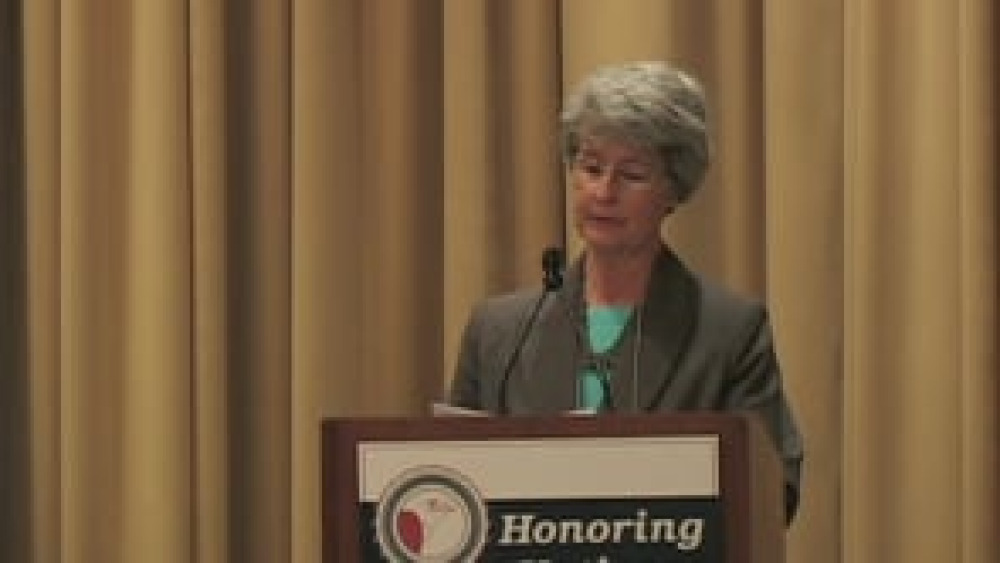
Honoring Nations: Carolyn Finster: Pine Hill Health Center
Pine Hill Health Center Clinic Administrator Carolyn Finster shares the story of how the Navajo people of Ramah capitalized on Public Law 93-638 to take over the education of their children and then their health care through the Pine Hill Health Center, which among other things has introduced…
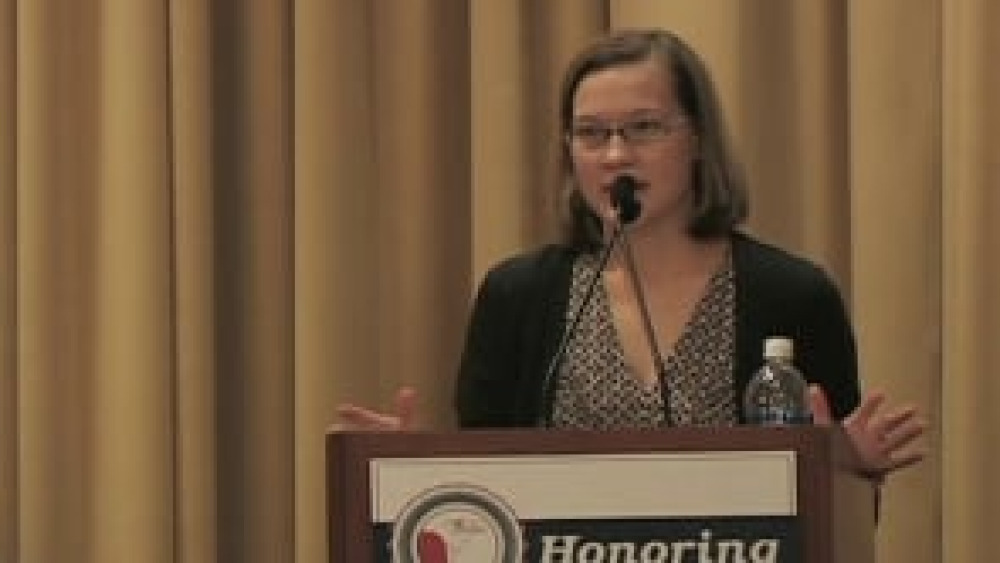
Honoring Nations: Sarah Hicks: NCAI and the Partnership for Tribal Governance
Former NCAI Policy Research Center Director Sarah Hicks discusses the growth of the National Congress of American Indians (NCAI) and specifically its recent initiatives to support the nation-building and advocacy efforts of Native nations.
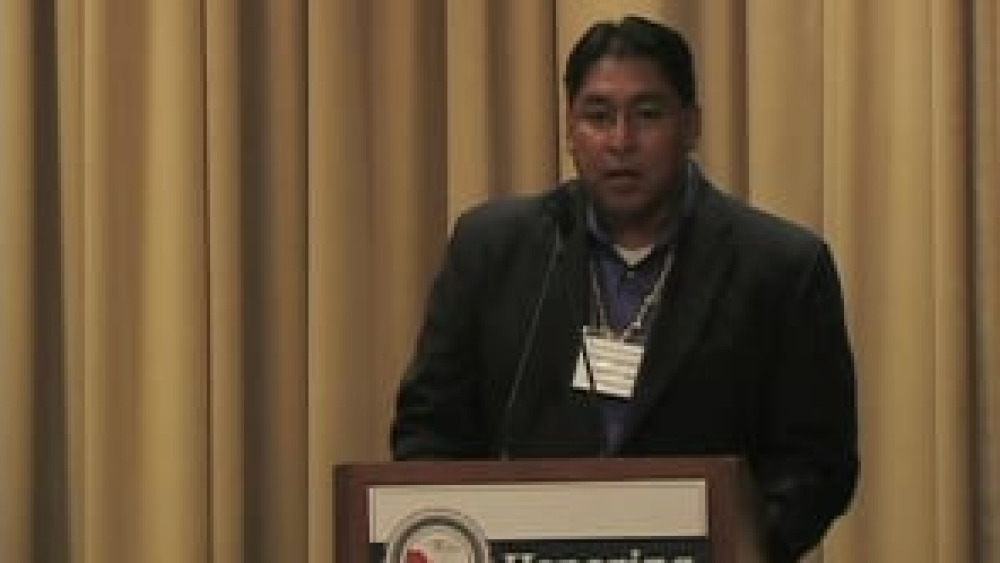
Honoring Nations: Gabriel Lopez: Ak-Chin Community Council Task Force
Ak-Chin Indian Community Council Member Gabriel Lopez discusses why the Community decided to establish the Ak-Chin Community Council Task Force, and shares how the Task Force works to protect the cultural and environmental integrity of the Ak-Chin community, reservation and surrounding lands.
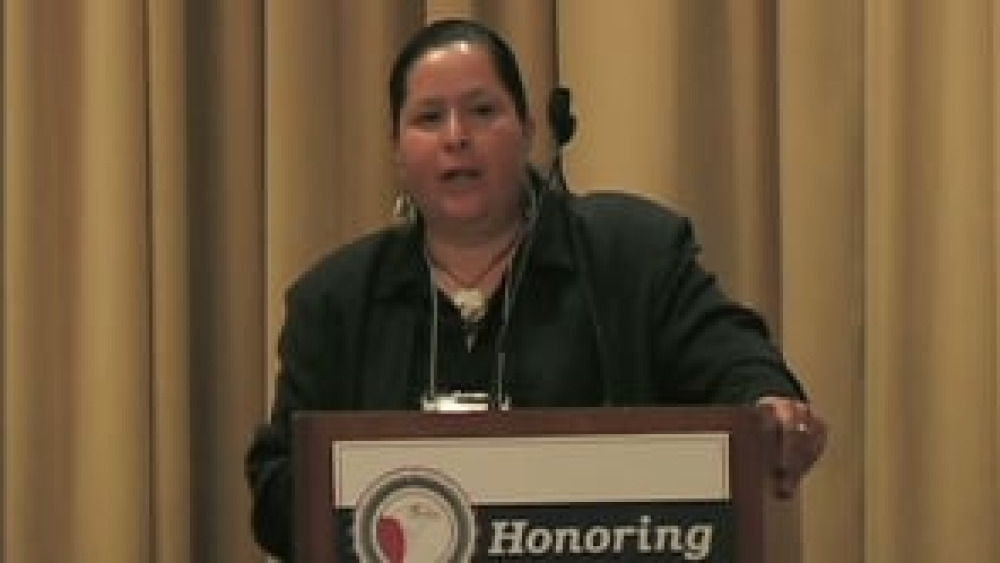
Honoring Nations: Shannon Martin: Ziibiwing Center of Anishinabe Culture and Lifeways
Ziibiwing Center of Anishinabe Culture & Lifeways Director Shannon Martin presents a history of the Ziibiwing Center and discusses the work it has been engaged in since it won an Honoring Nations award in 2006.
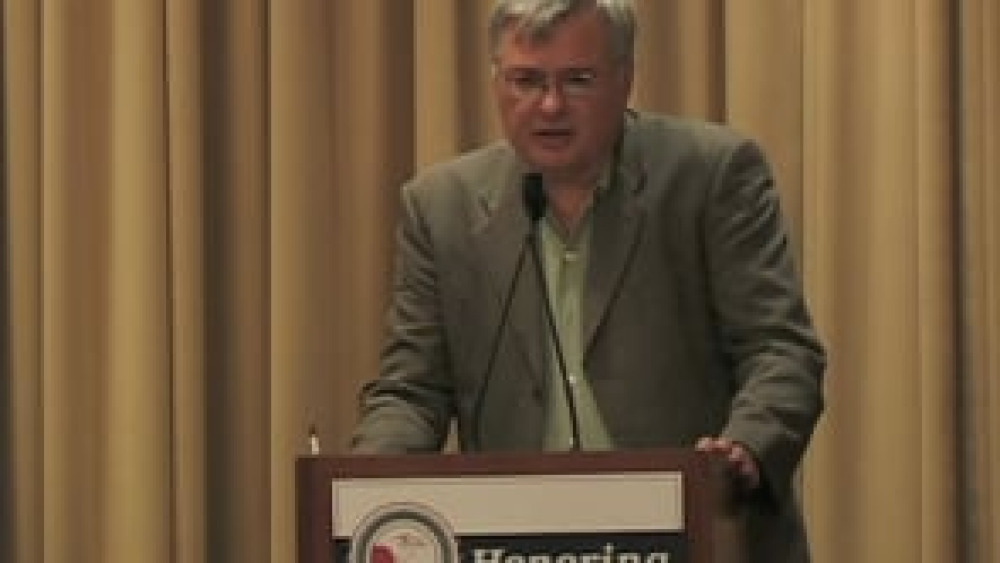
Honoring Nations: Duane Champagne: Government-to-Government Relations
UCLA American Indian Studies Professor Duane Champagne briefly discusses the history and importance of intergovernmental relationships for Native nations, spotlighting th Flandreau Police Department as a striking contemporary example.
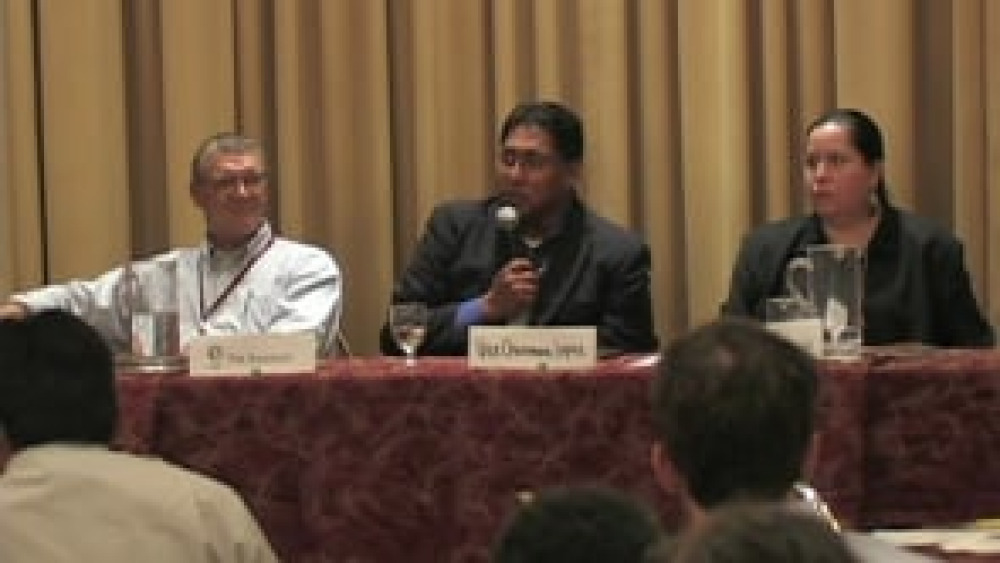
Honoring Nations: Gabriel Lopez and Shannon Martin: Government-to-Government Relations (Q&A)
Gabriel Lopez and Shannon Martin field questions from the audience about their nations' Honoring Nations award-winning programs.
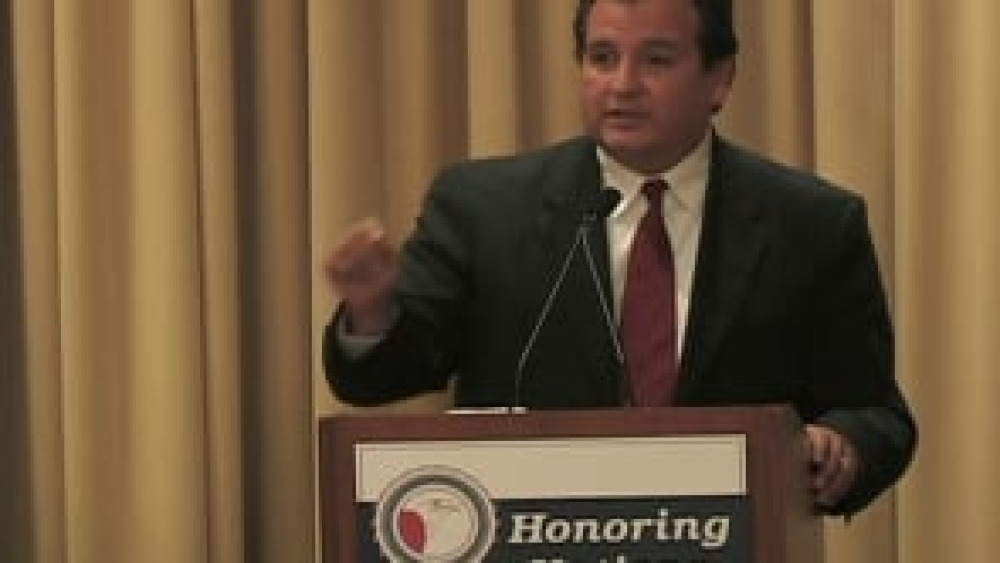
Honoring Nations: James R. Gray: Sovereignty Today
Former Osage Nation Principal Chief James R. Gray discusses what sovereignty means today through the lens of his first term in office under his nation's new system of government.
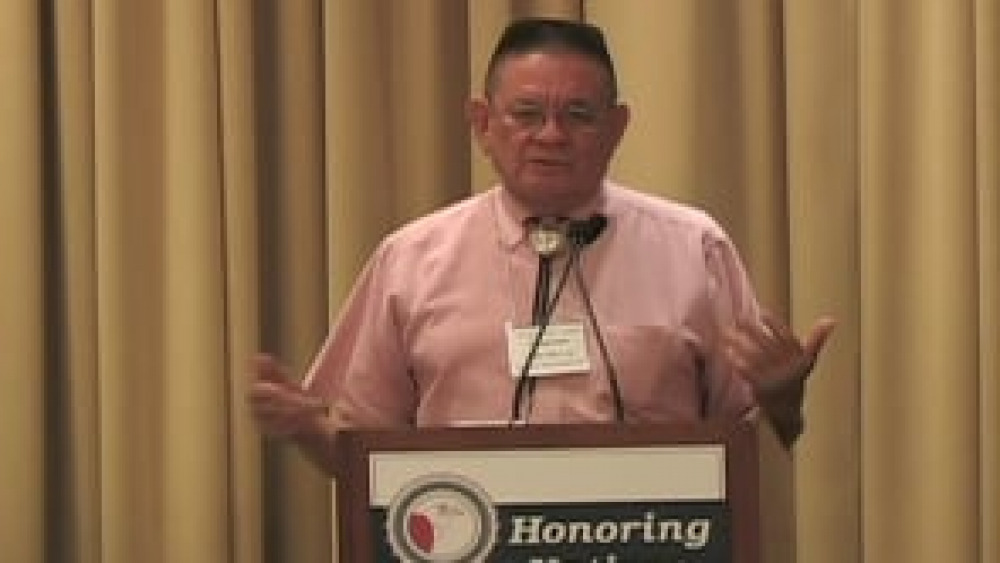
Honoring Nations: John McCoy: Sovereignty Today
Now-former Quil Ceda Village Director John McCoy talks about how and why the Tulalip Tribes established Quil Ceda Village, and also reflects on his tenure serving in the State of Washington Legislature.
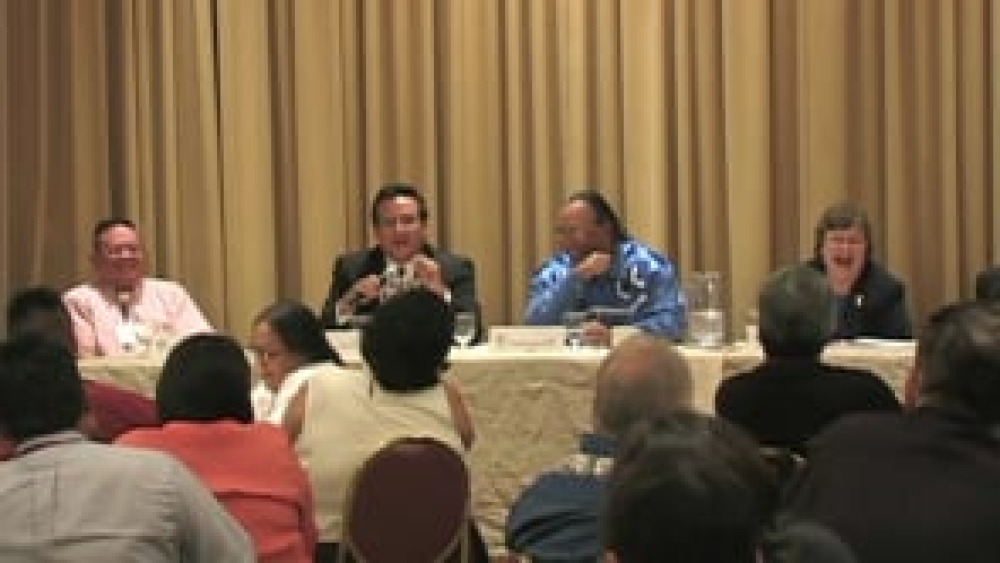
Honoring Nations: James R. Gray, Rick Hill and John McCoy: Sovereignty Today (Q&A)
Native leaders John McCoy, James R. Gray, and Rick Hill discuss the importance of Native nations joining forces to engage in economic development, and also why it is so important for Native nations and people to buy from their own.
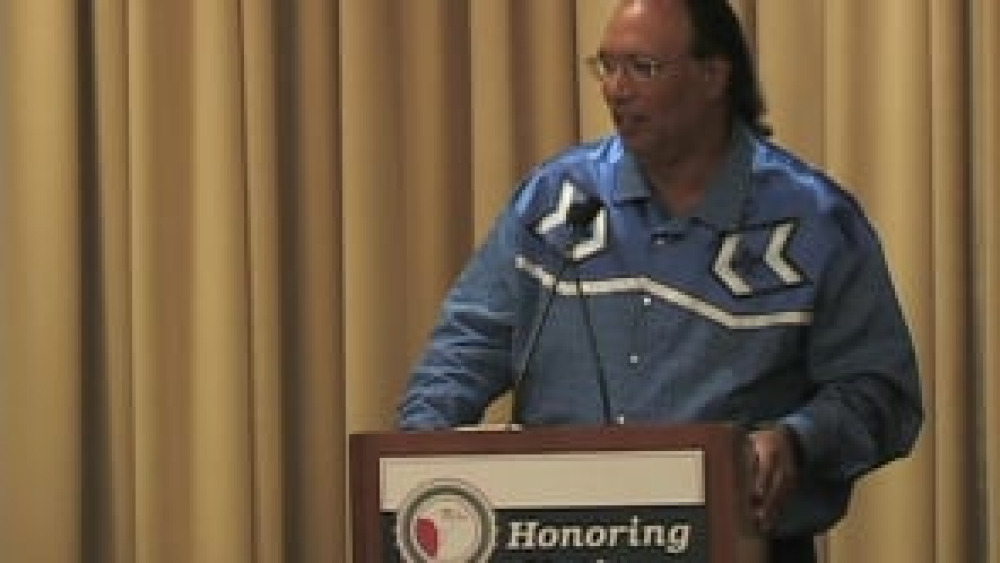
Honoring Nations: Rick Hill: Sovereignty Today
Former Oneida Nation Business Committee Chairman Rick Hill offers his perspectives on sovereignty today through the lens of the challenges facing his nation and the strategies theyr employing to achieve their nation-building goals.
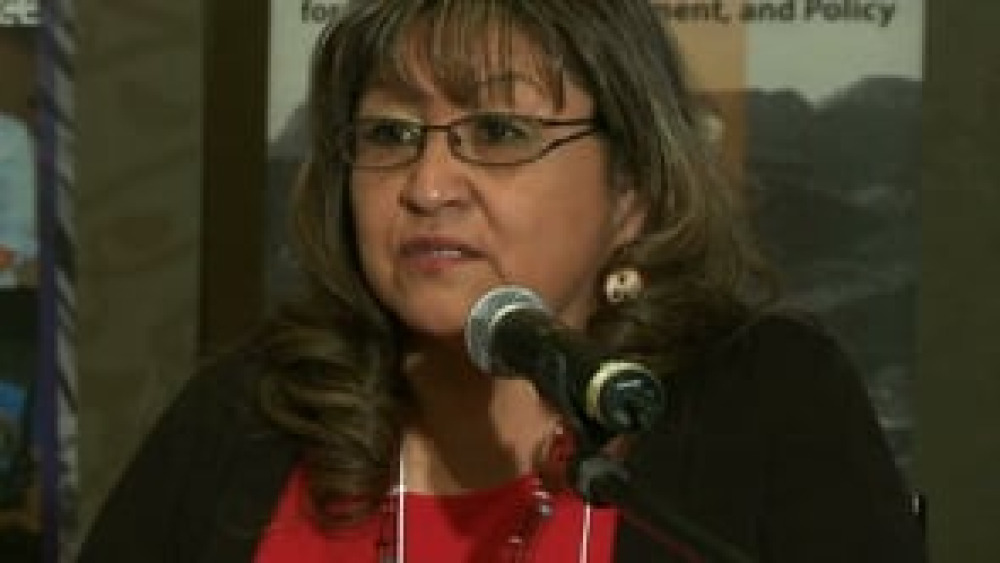
From the Rebuilding Native Nations Course Series: "The First Key to Effective Constitutions: Legitimacy"
Frank Ettawageshik, Joan Timeche and Frank Pommersheim discuss the importance of constitutional legitimacy to effective Native nation governance, and stress that the source of that legitimacy is the very people a constitution is designed to serve.
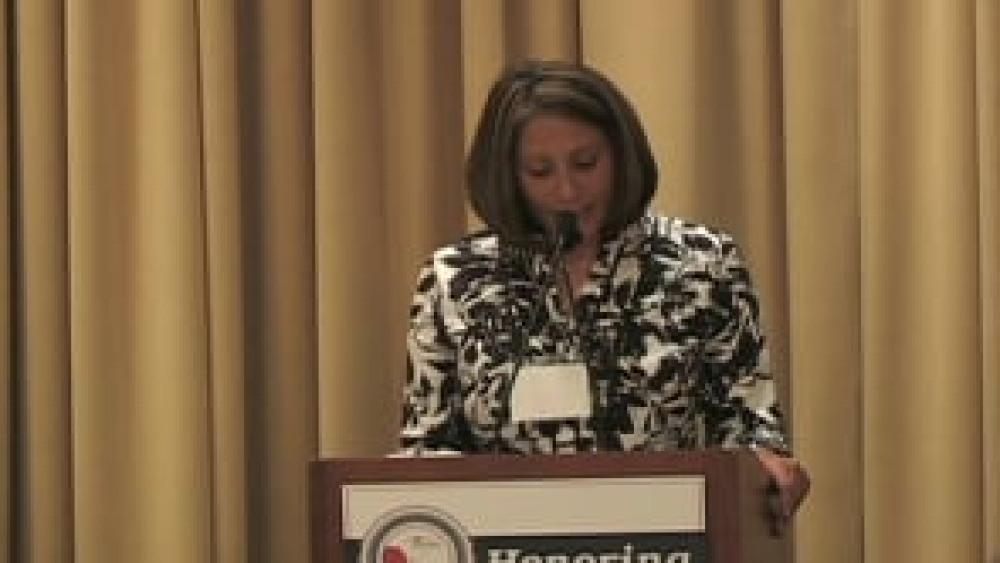
Honoring Nations: Joyce Wells: Project Falvmmichi
Choctaw Nation Healthy Lifestyles Program Director Joyce Wells describes how a 16-year-old Choctaw citizen transformed her idea and passion into a comprehensive education and mentoring program that seeks to prevent domestic violence in Choctaw communities.
Pagination
- First page
- …
- 5
- 6
- 7
- …
- Last page
